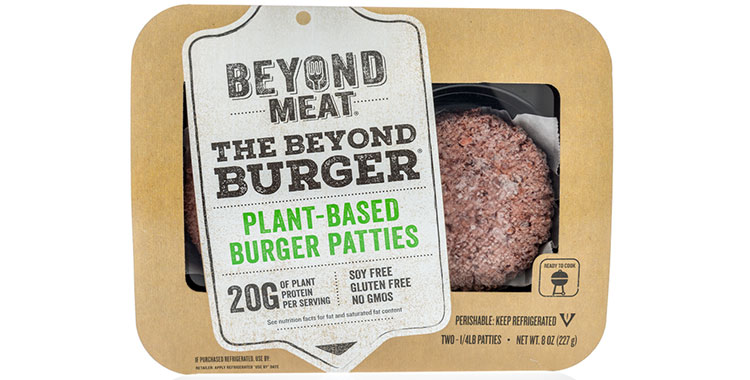Meat- and dairy-free purchases declined in January, despite the latest Vegauary push. While meat products also experinced a year-on-year decline in January, meat-free products showed a steeper decline.
The cost-of-living crisis can be attributed to a large proportion of the 12.8% volume decline over the first three weeks of January (Kantar) for meat-free products, which were 3.3% more expensive than meat products.
Dairy-free products, which were 18.4% more expensive than dairy products, suffered an 3.8% year-on-year decline in January.
AHDB said it seemed that food trends during January were changing, with greater opportunities for red meat and dairy to be eaten by consumers as part of a more health-conscious start to the year. Kantar data shows declined by 0.5% in the 12 weeks to January, with spend up 7% due to higher prices.
In January 2023, both meat-free and dairy-free products performed badly compared to January 2022, resulting in some retailers attempting to position plant-based products with health-focused messaging within stores this year, rather than promoting Veganuary 2024 as a standalone occasion (IGD).
Retailers’ efforts to try and increase the pick-up of meat-free products during this health-focused month weren’t very successful, as the percentage of baskets with meat-free products fell 0.4 percentage points YoY, to 4.1% (Kantar, 3 w/e 21 Jan 2024), AHDB added.
This indicates that consumers’ interest in meat-free products is waning, despite attempts to market them as healthy following the indulgent Christmas period, according to AHDB.
As expected, due to retailers focusing on health messaging, volumes for all plant-based dairy products were up for the 4 weeks of January 2024 (+6.4%) compared to an average 4-week period for the 52 w/e 27 January 2024 (Nielsen).
However, according to The Grocer, just 28% of UK adults attempting Veganuary actually complete it, and most are unlikely to continue purchasing meat-free products for the rest of the year.
“This suggests consumers have a fleeting interest in a meat-free lifestyle, and meat-free products are not a big threat to the meat industry at this point in time,” AHDB said. “While it is likely that new plant-based product development will be limited, meat and dairy may still face competition from cheap staple alternative products, like pasta and potatoes.”
Tom Price, retail and consumer insight analyst at AHDB, said: “Media coverage has recently focused in on the negative nutritional values of ultra-processed foods, which is putting many consumers off eating these products. This, alongside slowing inflation and the potential for real wages to grow in 2024, means health is becoming more of a priority for consumers.
“This provides an opportunity to promote the health benefits of meat and dairy to align with consumer values. AHDB continue to promote red meat and dairy as part of a healthy, balanced diet in our ‘Let’s Eat Balanced’ and ‘Love Pork’ campaigns, and our recent meat labelling research highlights the consumer desire to see meal inspiration, both on-pack and in-store, to give them confidence in their cooking.”




